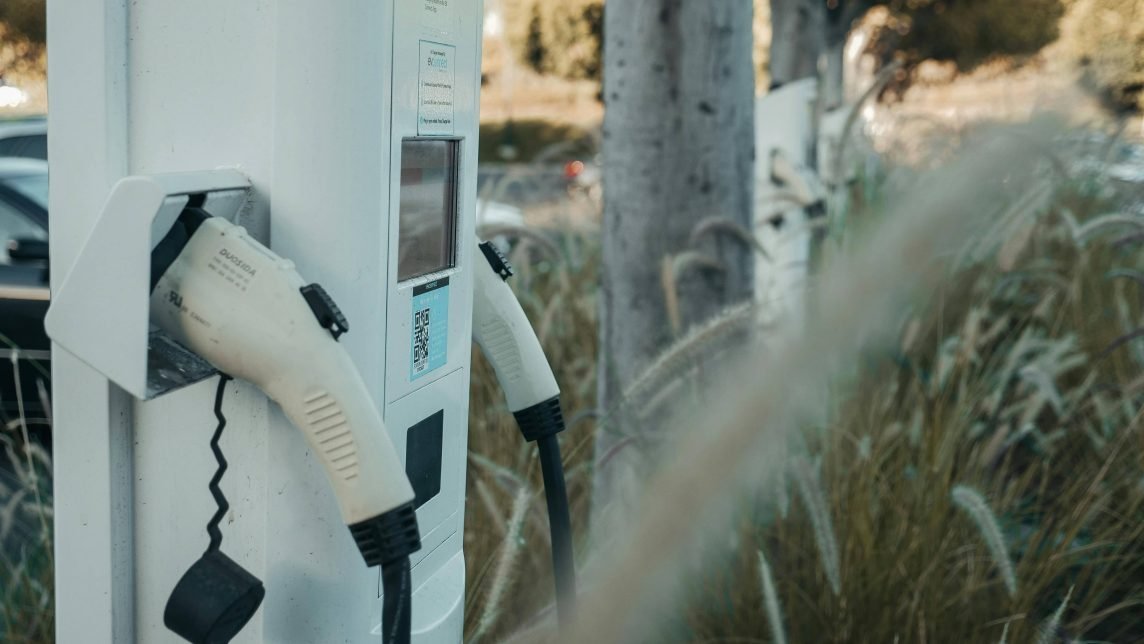As electric vehicles (EVs) continue to grow in popularity, businesses are increasingly recognizing the need to install EV chargers on their premises. Whether you’re looking to provide charging options for your employees, customers, or fleet vehicles, understanding the different types of EV chargers available is essential. This guide will walk you through the three main types of EV chargers—Level 1, Level 2, and DC Fast Chargers—so you can determine which one is right for your business.
1. Level 1 Chargers: The Basic Option
What Are Level 1 Chargers? Level 1 chargers are the most basic type of EV charger, typically providing power through a standard 120-volt AC outlet. These chargers come with most EVs and can be plugged into any regular electrical outlet, making them a convenient but slow charging option.
Charging Speed:
- Time to Full Charge: Level 1 chargers add about 3-5 miles of range per hour of charging. This means it can take anywhere from 8 to 20 hours to fully charge an EV, depending on the battery size.
- Best For: Businesses with limited EV usage or for overnight charging, such as hotels or smaller businesses with a small fleet.
Advantages:
- Cost-Effective: Level 1 chargers are the most affordable option, with minimal installation costs.
- Simple Installation: Since they use a standard outlet, there’s no need for specialized electrical work.
Disadvantages:
- Slow Charging: The slowest of the three levels, making it impractical for businesses needing quick turnarounds.
Is Level 1 Right for Your Business? Level 1 chargers are ideal for businesses that do not require rapid charging and are looking for a low-cost, entry-level solution. This might include small offices, residential properties, or businesses that want to provide a basic amenity for employees or customers.
2. Level 2 Chargers: The Most Popular Choice
What Are Level 2 Chargers? Level 2 chargers are the most common type of EV charger found at public charging stations and in commercial settings. They operate on 240 volts (similar to what is used for large home appliances) and provide a faster charging rate than Level 1 chargers.
Charging Speed:
- Time to Full Charge: Level 2 chargers add about 10-20 miles of range per hour, reducing the time to fully charge an EV to 4-8 hours.
- Best For: Businesses that want to offer a quicker charge, such as retail locations, restaurants, and offices, or for charging fleet vehicles overnight.
Advantages:
- Faster Charging: Significantly faster than Level 1, making it a practical choice for daily use.
- Flexibility: Suitable for a wide range of businesses, from workplaces to public parking lots.
Disadvantages:
- Installation Costs: Requires professional installation and a dedicated circuit, which can increase upfront costs.
- Infrastructure Needs: Some older buildings may need electrical upgrades to support Level 2 chargers.
Is Level 2 Right for Your Business? Level 2 chargers are a great fit for businesses that want to offer faster charging to customers or employees. They are also ideal for businesses with fleet vehicles that need to be charged daily, as they strike a good balance between speed and cost.
3. DC Fast Chargers: The Ultimate Powerhouse
What Are DC Fast Chargers? DC Fast Chargers are the most powerful type of EV charger, delivering direct current (DC) to the battery and bypassing the vehicle’s onboard charger. These chargers operate at 400 to 900 volts and can charge an EV battery to 80% in just 30 minutes.
Charging Speed:
- Time to Full Charge: DC Fast Chargers can add 60-80 miles of range in just 20 minutes, making them the fastest charging option available.
- Best For: High-traffic areas, businesses with a large fleet, or locations where drivers need to charge quickly and get back on the road.
Advantages:
- Rapid Charging: Ideal for businesses that need to charge vehicles quickly, such as delivery services, logistics companies, and highway rest stops.
- Customer Attraction: Offering DC Fast Charging can attract EV drivers to your business, providing a competitive advantage.
Disadvantages:
- High Costs: DC Fast Chargers are the most expensive to purchase and install, with significant electrical infrastructure required.
- Energy Demand: These chargers require a substantial amount of power, which can lead to higher operational costs.
Is DC Fast Charging Right for Your Business? DC Fast Chargers are best suited for businesses that require rapid charging capabilities, such as those located near highways, or for companies with large fleets that need minimal downtime. They are also an excellent choice for businesses looking to offer premium charging services to customers.
4. Special Considerations for Choosing an EV Charger
Charging Location: The physical location of your chargers can impact their usage. For example, placing chargers near the entrance of your business or in well-lit, accessible areas can encourage more frequent use.
Scalability: Consider whether your business might need to expand its EV charging capabilities in the future. If so, investing in infrastructure that can support multiple chargers or different types of chargers might be wise.
Incentives and Rebates: Many local governments and utilities offer incentives for businesses to install EV chargers. These can significantly reduce the initial cost, making it more affordable to implement charging solutions.
User Experience: Think about the experience you want to provide for your customers or employees. For example, offering a mix of Level 2 and DC Fast Chargers could cater to different needs, ensuring that everyone who uses your chargers has a positive experience.
Conclusion
Choosing the right EV charger for your business depends on various factors, including your budget, the charging speed you require, and the needs of your customers or employees. Whether you opt for the affordability of Level 1 chargers, the balanced performance of Level 2 chargers, or the rapid power of DC Fast Chargers, investing in EV charging infrastructure is a forward-thinking decision that can benefit your business in the long run.
By understanding the different types of EV chargers and their applications, you can make an informed choice that supports your business’s sustainability goals, attracts eco-conscious customers, and provides convenience for EV drivers.

